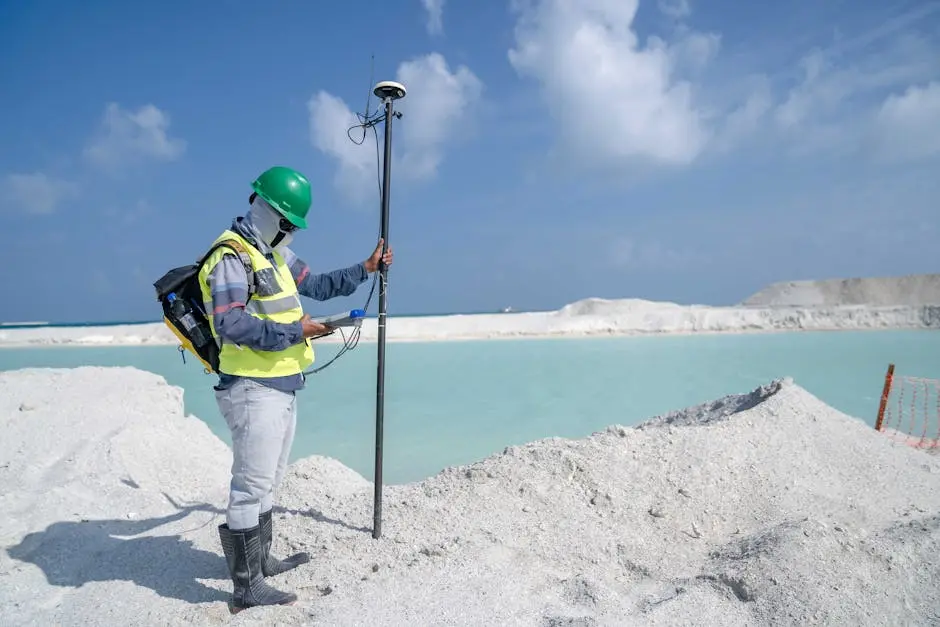Accurate land surveying is a crucial step in the success of any development project. Whether you’re building a new home or embarking on a commercial development, ensuring precise measurements and clear boundaries can save time, money, and potential disputes in the future. In this guide, we’ll walk you through essential steps to guarantee you receive top-notch land surveying services.
1. Researching Reputable Surveying Companies
Start by researching local surveying companies known for their reliability and accuracy. Seek recommendations from peers and check online reviews to narrow down your options. A helpful approach is to visit Land Survey Company, where you can find information on the importance of having a registered surveyor handle your project. This knowledge ensures your surveyor’s practices are up-to-date and compliant with state regulations.
In addition to exploring online reviews, consider reaching out directly to firms to gauge their level of customer service and inquire about past projects. The way a company communicates with potential clients can often be a good indication of how they will handle your project. Also, check their portfolios for completed projects similar to yours to ensure they have the necessary expertise.
2. Understanding the Type of Survey Needed
Different projects require different types of surveys. It’s essential to understand which survey aligns with your project’s needs. For instance, you might need an ALTA/NSPS land title survey for complex commercial transactions. ALTA surveys are particularly beneficial for providing comprehensive data about a property’s boundaries, easements, and other title issues. Learn more about the suitable types of land surveys used in civil engineering to help you make a well-informed decision.
Other survey options like boundary and topographic surveys might be more appropriate if your project concerns residential development or involves certain environmental parameters. Understanding these details not only ensures that you get the most out of the surveying process but also protects you from potential legal hassles down the line. Proper knowledge can also prevent financial setbacks that could arise from overlooking specific survey requirements.
3. Verifying Licenses and Certifications
Confirming that your surveyor possesses the necessary licenses and certifications is a non-negotiable step. This not only ensures that the individual meets professional standards but also protects you from potential legal issues. Licensed surveyors are bound by state regulations to adhere to industry standards, providing an additional layer of security to your development project.
Licenses and certifications are indicative of a surveyor’s commitment to their field and continuous education. They affirm that the methodologies employed are current and of the highest standards. When hiring a surveying firm, insist that the qualifications of the team, especially those individuals who will be directly involved in your project, meet the necessary professional and legal standards.
4. Requesting Detailed Cost Estimates
Upfront clarity about costs is vital for effective budget management. Request a comprehensive cost estimate that outlines all the services your project needs, from initial planning stages through final report delivery. Detailed cost estimates act as a safeguard against unexpected expenses that could derail aspects of your plan.
Remember, a low-cost estimate does not always mean a budget-friendly decision. Evaluate the value you receive for the quoted price thoroughly to ensure your project doesn’t compromise on quality. It’s preferable sometimes to invest a little more for thorough, precise surveying that will yield better long-term results and cost savings.
5. Scheduling a Preliminary Meeting
A preliminary meeting with your chosen surveyor can set the tone for a successful project. This meeting provides a platform to outline the scope of work, clarify all aspects of the planned surveys, and discuss potential challenges. It’s an opportunity to ensure the surveyor fully understands your project’s objectives and can tailor their services to meet specific needs.
6. Clarifying Survey Results
After the survey is completed, reviewing the results with the surveyor is crucial to clear up any uncertainties. Survey data can be dense and technical, thus getting explanations from professionals will help you understand pivotal details about your property’s boundaries and characteristics. This ensures decisions made will be informed and in direct correlation to accurate data.
7. Using the Latest Technology
When selecting a surveying service, inquire about the technology they employ. The utilization of advanced tools such as GPS and drone technology greatly enhances the accuracy and efficiency of measurements. Many modern surveying firms, including Ludlow Engineers, adopt the latest technology to deliver high-quality survey results that stand the test of legal and practical scrutiny.
8. Confirming Compliance with Local Regulations
Ensuring compliance with local regulations is essential for avoiding future legal entanglements. A thorough review of the survey results should be made to ensure that they align with zoning laws and local land use bylaws. Missteps in compliance can lead to costly alterations or fines, posing setbacks to your project timeline.
9. Reviewing the Surveyor’s Insurance
Before finalizing your engagement, check whether the surveyor holds appropriate liability insurance. This coverage acts as a safety net by providing financial protection in case of errors or omissions in the survey, mitigating potential risks to your project.
10. Requesting Data in Various Formats
Ensuring survey data compatibility with architectural or engineering software plays a crucial role in effective project implementation. Request the data in formats that best align with these tools, facilitating easier integration and processing of information across departments.
11. Tracking Project Milestones
Setting milestones for the completion of different phases within your project timeline allows for effective tracking of progress. Clear milestones help you identify delays early on, enabling proactive resolutions and adjustments to project plans as necessary.
12. Maintaining Confidential Records
Keep all survey records secure and confidential, as they contain vital information for the development project. Proper documentation management protects sensitive data from unauthorized access, which could compromise the integrity of your development plans.




